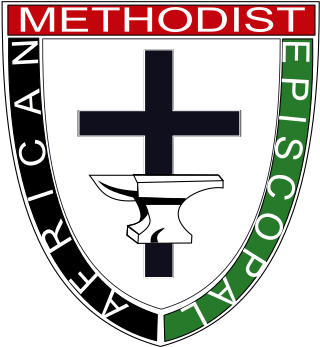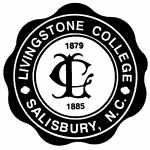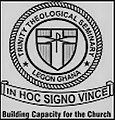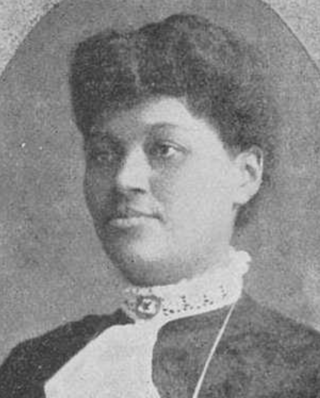George Lincoln Blackwell | |
|---|---|
 c. 1910 |
George Lincoln Blackwell (2 July 1861 – 20 March 1926) was an African American author and bishop of the African Methodist Episcopal Zion Church.
George Lincoln Blackwell | |
|---|---|
 c. 1910 |
George Lincoln Blackwell (2 July 1861 – 20 March 1926) was an African American author and bishop of the African Methodist Episcopal Zion Church.
Born in Henderson, North Carolina as the son of slaves, Blackwell graduated from Livingstone College, Salisbury, North Carolina, in 1888, and from Boston University School of Theology, in 1892. He served as dean of Livingstone College Theological School of the African Methodist Episcopal Zion Church from 1893 to 1896, as general agent of the denominational publishing house and editor from 1896 to 1900, as general secretary 1900 to 1904, and as combined with missionary secretary from 1904 to 1908. He became a bishop in 1908. Blackwell also served the delegate of his church to the Ecumenical Councils at London in 1907 and at Toronto in 1911.
Blackwell married Annie Walker (1862–1922), daughter of South Carolina state senator Dublin Walker, in 1887. She supported his work, and held leadership positions in the church as well. She wrote a pro-suffrage pamphlet, and published a hymnal. They had two children, who both died in infancy. [1]
The Methodist Episcopal Church, South was the American Methodist denomination resulting from the 19th-century split over the issue of slavery in the Methodist Episcopal Church (MEC). Disagreement on this issue had been increasing in strength for decades between churches of the Northern and Southern United States; in 1845 it resulted in a schism at the General Conference of the MEC held in Louisville, Kentucky.

The African Methodist Episcopal Church, usually called the AME Church or AME, is a Methodist Black church. It adheres to Wesleyan-Arminian theology and has a connexional polity. The first independent Protestant denomination to be founded by Black people, AME welcomes and has members of all ethnicities.

The African Methodist Episcopal Zion Church, or the AME Zion Church (AMEZ) is a historically African-American Christian denomination based in the United States. It was officially formed in 1821 in New York City, but operated for a number of years before then. The African Methodist Episcopal Zion Church adheres to Wesleyan-Arminian theology.

Livingstone College is a private historically black Christian college in Salisbury, North Carolina. It is affiliated with the African Methodist Episcopal Zion Church. Livingstone College is accredited by the Southern Association of Colleges and Schools to award bachelor's degrees.

Daniel Alexander Payne was an American bishop, educator, college administrator and author. A major shaper of the African Methodist Episcopal Church (AME), Payne stressed education and preparation of ministers and introduced more order in the church, becoming its sixth bishop and serving for more than four decades (1852–1893) as well as becoming one of the founders of Wilberforce University in Ohio in 1856. In 1863, the AME Church bought the college and chose Payne to lead it; he became the first African-American president of a college in the United States and served in that position until 1877.
Titus Lowe was an English-American Bishop of the Methodist Episcopal Church and The Methodist Church, elected in 1924.

John Wesley Edward Bowen was born into American slavery and became a Methodist clergyman, denominational official, college and university educator and one of the first African Americans to earn a Ph.D. degree in the United States. He is credited as the first African American to receive the Ph.D. degree from Boston University, which was granted in 1887.

Henry McNeal Turner was an American minister, politician, and the 12th elected and consecrated bishop of the African Methodist Episcopal Church (AME). After the American Civil War, he worked to establish new A.M.E. congregations among African Americans in Georgia. Born free in South Carolina, Turner had learned to read and write and became a Methodist preacher. He joined the AME Church in St. Louis, Missouri, in 1858, where he became a minister. Founded by free blacks in Philadelphia, Pennsylvania, in the early 19th century, the A.M.E. Church was the first independent black denomination in the United States. Later Turner had pastorates in Baltimore, Maryland, and Washington, DC.

Hood Theological Seminary is a Christian seminary sponsored by the African Methodist Episcopal Zion Church in Salisbury, North Carolina. It is a graduate and professional school sponsored by the African Methodist Episcopal Zion Church and approved by the University Senate of The United Methodist Church. From its founding in 1879 until 2001, the seminary was part of Livingstone College; it is now independent. The seminary is accredited by the Association of Theological Schools in the United States and Canada.

Henry Beard Delany was an American clergyman and the first African-American person elected Bishop Suffragan of the Episcopal Church in the United States.

George DeWitt Mason was an American architect who practiced in Detroit, Michigan, in the latter part of the 19th and early decades of the 20th centuries.

James Walker Hood was an African Methodist Episcopal Zion Church bishop in North Carolina from 1872 to 1916. Before the Emancipation Proclamation, he was an active abolitionist, and during the American Civil War he went to New Bern, North Carolina where he preached for the church to the black people and soldiers in the area. He was very successful and became an important religious and political leader in North Carolina, becoming "one of the most significant and crucial African American religious and race leaders during the nineteenth and early twentieth centuries". By 1887 he had founded over six hundred churches in Virginia, North Carolina, and South Carolina and erected about five hundred church buildings. He was politically and religiously active as well, supporting education, civil rights, and the ordination of women.

Joseph Charles Price was a founder and the first president of Livingstone College in Salisbury, North Carolina. He was one of the greatest orators of his day and a leader of African Americans in the southern United States. His death at the age of 39 cut short a career that might otherwise have vied with that of Booker T. Washington.

John Campbell Dancy was an American politician, journalist, and educator in North Carolina and Washington, D.C. For many years he was the editor of African Methodist Episcopal (AME) Zion church newspapers Star of Zion and then Zion Quarterly. In 1897 he was appointed collector of customs at Wilmington, North Carolina, but was chased out of town in the Wilmington insurrection of 1898, in part for his activity in the National Afro-American Council which he helped found that year and of which he was an officer. He then moved to Washington, D.C., where he served as Recorder of Deeds from 1901 to 1910. His political appointments came in part as a result of the influence of his ally, Booker T. Washington.

The Trinity Theological Seminary is a Protestant seminary located on a 70-acre campus in Legon, Accra. As an ecumenical theological tertiary and ministerial training institution, it serves students in Ghana and the West African sub-region. The focus of the curriculum is pedagogy, guidance, counselling, and fieldwork to adequately prepare students for careers in Christian ministry. The school has charter status, offers certificate, diploma, and degree programmes, and is accredited by the National Accreditation Board of the Ghanaian Ministry of Education.
Cameron Chesterfield Alleyne was a Barbados-born American bishop of the African Methodist Episcopal Zion Church (AMEZ). Alleyne studied in the United States and was ordained there. He held appointments as a pastor in churches across the United States, served as a trustee of several educational institutions and edited AMEZ's journal. Alleyne was elected a bishop of the church in 1924, becoming the first AMEZ bishop to be elected by unanimous vote. His first posting was as resident bishop to Africa, during which he made attempts to reform the church's missions and expand its reach. Returning to the US in 1928 he held appointments to two AMEZ districts and as a representative to the Commission of Army and Navy Chaplains during World War II.

Bishop Singleton T. Jones was a religious leader in the African Methodist Episcopal Zion Church. When he was ten years old, he was apprenticed to a lawyer and worked for him for four years, after which he found positions at an inn, as a hod carrier, and on a riverboat on the Ohio River. He became a pastor in the 1840s, serving churches throughout Pennsylvania, New Jersey, Maryland, and the District of Columbia. Although he had little education, he taught himself to be an articulate orator. Besides being a pastor to churches, he also edited AME Zion publications, the Zion's Standard and Weekly Review and the Discipline.
Rev. John E. Price was an elder and minister of the African Methodist Episcopal Zion Church. He was a minister for around 50 years. He was the founder and president of the Garnet Equal Rights League at Harrisburg. He wrote hymns and was an editor for the Zion Church Advocate and, with William H. Day, the Zion Church Herald and Outlook, the first paper of the AME Zion Church. Day was a minister, abolitionist, and educator.

John Wesley Alstork was an American religious leader and African-American community organizer. He was a preacher and bishop in the African Methodist Episcopal Zion Church and is considered one of the most successful bishops of his church, in part due to his skills at organizing national conferences. He also was a trustee at several schools for African-Americans, and a businessman. He lived in Montgomery, Alabama.

Annie Walker Blackwell was an American church worker, suffragist, and writer. The Annie Walker Blackwell School for Women and Girls in Liberia was named in her memory.